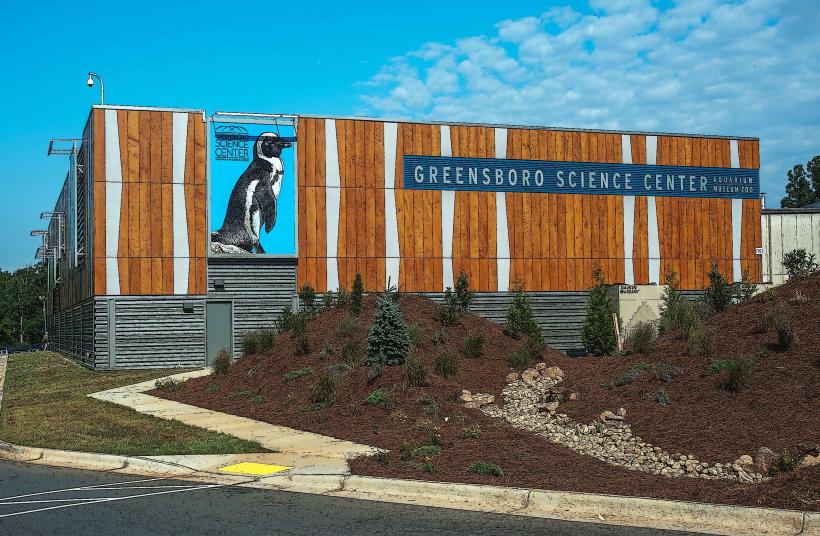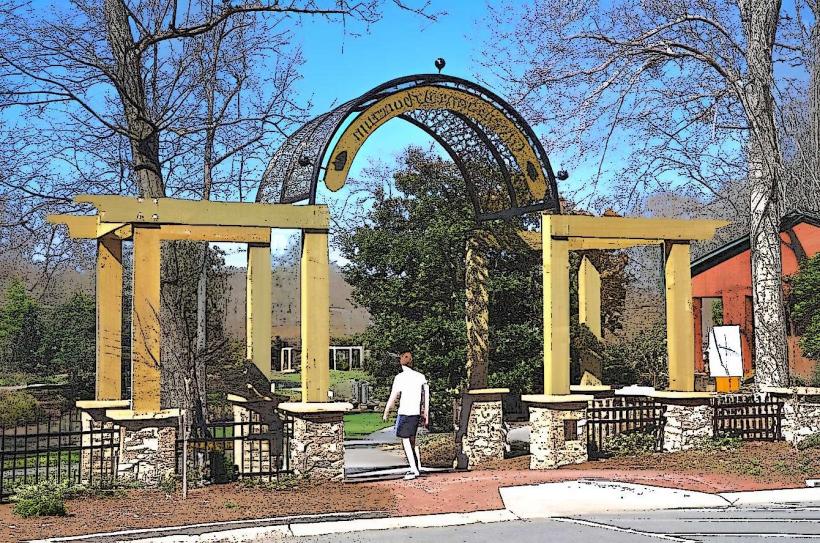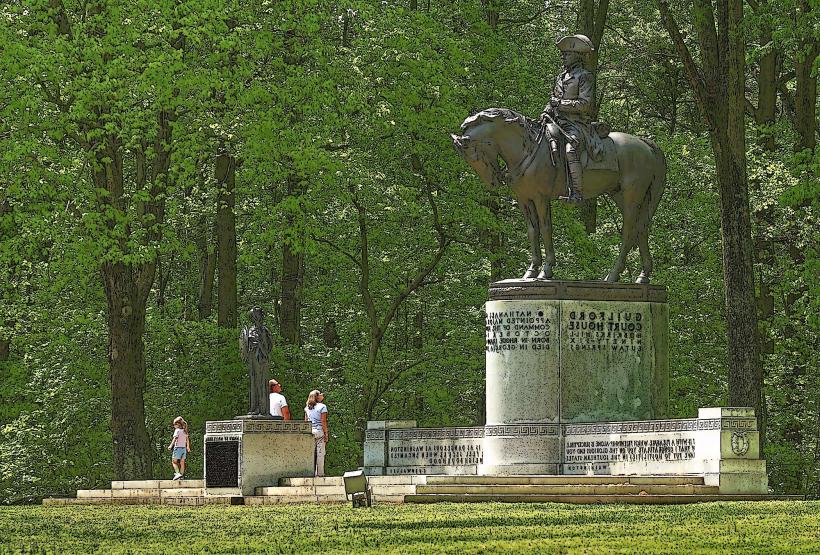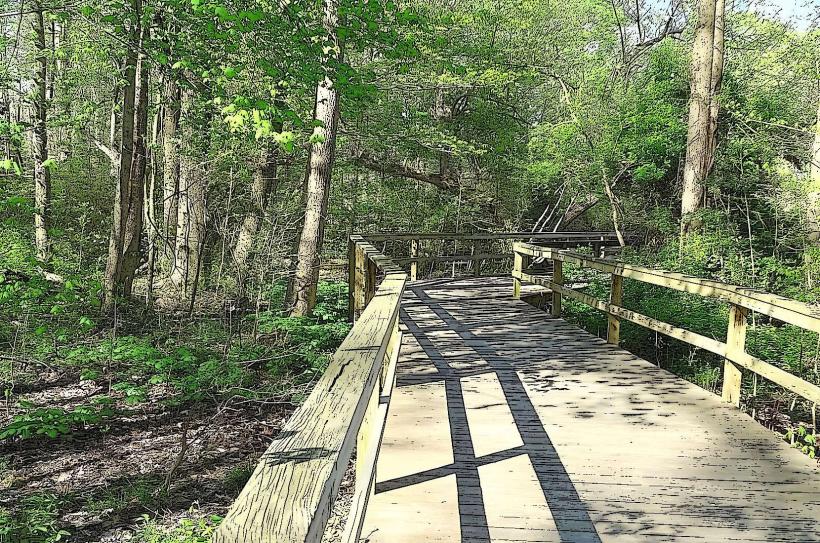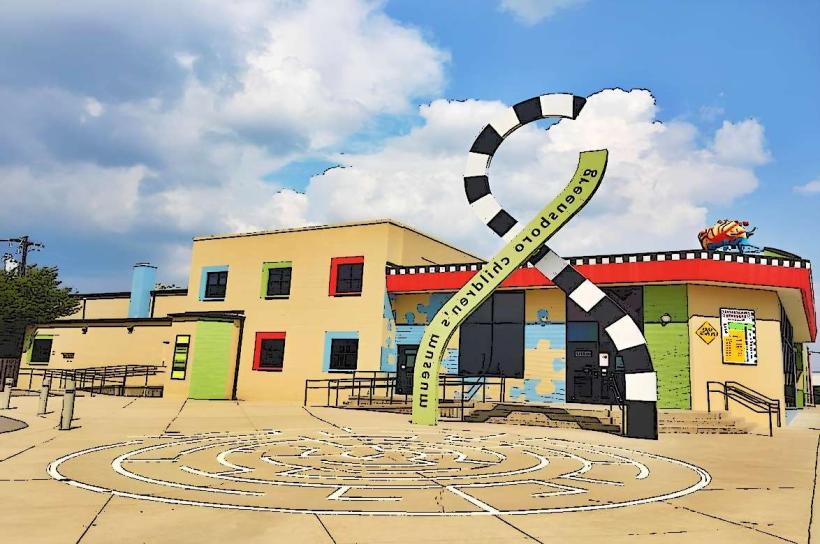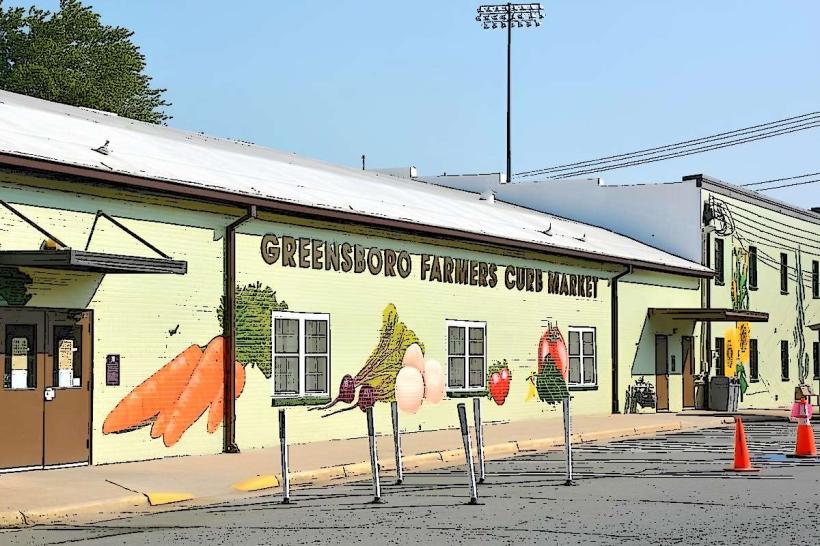Information
Landmark: International Civil Rights Center & MuseumCity: Greensboro
Country: USA North Carolina
Continent: North America
International Civil Rights Center & Museum, Greensboro, USA North Carolina, North America
The International Civil Rights Center & Museum (ICRCM) in Greensboro, North Carolina, is a historically significant and culturally enriching institution. It is both a museum and an educational center dedicated to chronicling the history of the Civil Rights Movement in the United States, with a particular focus on the pivotal 1960 Greensboro sit-ins that catalyzed similar protests across the country.
Historical Background
The museum is housed in the former F.W. Woolworth Building, where, on February 1, 1960, four African American college students from North Carolina A&T State University—Ezell Blair Jr. (Jibreel Khazan), Franklin McCain, Joseph McNeil, and David Richmond—initiated a peaceful sit-in at a segregated lunch counter. Their refusal to leave after being denied service launched a nonviolent movement that spread rapidly throughout the South, becoming a cornerstone of the broader American civil rights struggle.
The museum opened on February 1, 2010, exactly 50 years after the original sit-in, to honor the courage and legacy of the Greensboro Four and the many others who followed their example.
Permanent Exhibitions and Features
1. The Original Woolworth’s Lunch Counter
This is the museum’s most iconic exhibit. The actual lunch counter and stools from the 1960 sit-in have been preserved in their original location. They serve as powerful, tangible symbols of peaceful protest and social defiance against systemic racial segregation.
2. Battlegrounds Exhibits
This is a 14-gallery, multi-sensory experience that uses film, archival footage, photographs, oral histories, and interactive displays to tell the broader story of the Civil Rights Movement. These galleries trace the roots of systemic racism and the evolution of resistance from slavery through the modern era.
Exhibits include:
The rise and impact of Jim Crow laws
Montgomery Bus Boycott
Freedom Rides
March on Washington
Voting Rights Act of 1965
School integration and the role of the courts
3. Artifacts and Personal Effects
The museum’s collection includes historically meaningful objects such as:
A Ku Klux Klan robe and hood
A pen used to sign the Voting Rights Act of 1965
A Tuskegee Airman’s uniform
Civil rights protest signs and literature
Jail door replicas and courtroom reconstructions
These artifacts add authenticity and emotional weight to the storytelling.
Types of Tours Offered
Signature Staff-Guided Tour (60–75 minutes)
Led by a knowledgeable docent, this tour walks visitors through the entire set of permanent exhibits, giving context and interpretation to the visuals, artifacts, and historical timelines.
Seated Tour & Walkthrough (90–105 minutes)
Begins with a filmed overview of the Civil Rights Movement, followed by a self-guided walkthrough of the galleries with museum staff present to answer questions.
Interactive Virtual Tour (90 minutes)
Delivered via Zoom, this tour combines recorded materials with live discussion and Q&A with senior docents. Ideal for school groups and remote learners.
SIMI Tour (60–90 minutes)
Specially designed for younger children (K–2nd grade), this tour features simplified storytelling, interactive scavenger hunts, and age-appropriate content on fairness and justice.
Educational and Community Programs
The ICRCM regularly hosts:
Workshops and Seminars on civil rights, leadership, and American history
Annual Commemorations such as the February 1st celebration and MLK Day events
Lectures and Panel Discussions featuring scholars, civil rights leaders, and activists
Special Exhibits on contemporary social justice issues
Youth engagement programs, including essay contests, debate forums, and oral history projects
The museum also works with educators to provide curriculum materials and professional development opportunities.
Visitor Information
Address: 134 South Elm Street, Greensboro, NC 27401
Phone: (336) 274-9199
Operating Hours
Monday to Saturday: 10:00 AM – 6:00 PM
Closed Sundays and major holidays
Admission Fees
Signature Tour: $20 (Adults), $15 (Students K–12)
Seated Tour: $15 (All visitors)
Virtual Tour: $15 (Adults), $10 (Students)
SIMI Tour: $15 (Adults), $10 (Students); group reservation required
Note: Photography is not allowed in the exhibit areas, but visitors can take photos in the museum’s lobby.
Special Notes and Recognition
The ICRCM is working toward recognition as a National Historic Landmark and has aspirations to be included as a UNESCO World Heritage Site due to its global relevance in the fight for human rights.
The museum also serves as a venue for special events, including the Annual Gala, educational symposia, and community dialogues on equity and civil rights.
Significance
The International Civil Rights Center & Museum is not just a local or regional institution—it is a nationally significant site that plays an essential role in preserving, interpreting, and communicating the story of civil rights in America. Its immersive exhibits, historic setting, and educational programs make it a must-visit destination for anyone seeking to understand the history of racial justice in the United States. It stands as a tribute to those who challenged injustice and inspires future generations to continue the work of equality and human dignity.

